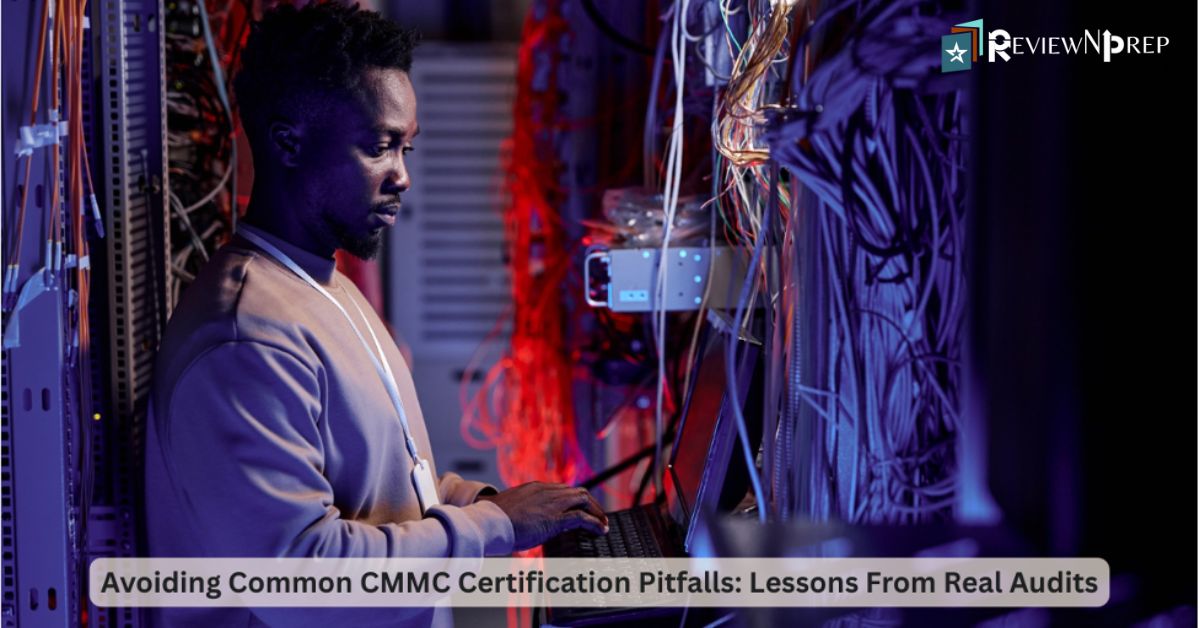On October 15, 2024, the United States Department of Defense (DoD) published the final rule for the Cybersecurity Maturity Model Certification (CMMC) program, signaling a new era of cyber compliance for Defense Industrial Base (DIB) companies.
Unlike previous CMMC iterations that emphasized compliance for prime contractors, the new framework requires every entity that does business with the DoD to possess valid certifications under their relevant maturity levels.
However, CMMC certification can be daunting for the uninitiated. One way to ace the process is by avoiding the following common certification pitfalls.

1. Downplaying the Significance of CMMC
The Cybersecurity Maturity Model Certification was developed to avert cyber events targeting the defense supply chain.
The program’s most recent version – CMMC 2.0 – was revamped following a spike in the number of aggressive cyberattacks aimed at critical defense infrastructures, including the infamous SolarWinds Attack.
However, obtaining CMMC certification confers more benefits than simply safeguarding the defense supply chain. It enhances competitiveness for DoD tenders, bolsters stakeholder trust, and enables businesses to better understand their cybersecurity posture.
2. Not Understanding the Information Classes Involved
CMMC seeks to protect the handling, storage, and dissemination of two information classes, namely Federal Contract Information (FCI) and Controlled Unclassified Information (CUI).
FCI and CUI are two categories of information generated by or for the U.S. federal government. While not classified, they must be handled judiciously as unauthorized access could jeopardize national security.
CUI requires multiple protection layers than FCI.
3. Incomplete Asset Inventory
Knowing the information classes targeted by CMMC isn’t enough. To streamline the certification process, you must also take stock of your organization’s asset inventory.
Identify the systems that house all sensitive information in your organization. These could be physical contract documents, hardware storage disks, or cloud networks.
Understanding the assets in your business that interact with FCI and CUI ensures fast information retrieval, expediting CMMC certification.
4. Not Understanding the CMMC Levels
There are three distinct CMMC levels.
Level 1 mandates businesses to implement basic cyber practices, such as access control. It applies to contractors handling federal contract information. Organizations seeking CMMC certification (OSCs) for level one can self-assess and attest to their compliance levels annually.
CMMC Level 2 seeks to protect controlled, unclassified information. To obtain certification under this maturity level, you must schedule independent audits led by CMMC third-party assessor organizations (C3PAOs) at least once every three years.
Lastly, CMMC Level 3 aims to protect the defense supply chain from advanced persistent threats (APTs). It also targets companies handling CUI, although there are more cybersecurity protocols to adhere to. Assessments are conducted triennially and led by government officials from the Defense Industrial Base Cybersecurity Assessment Center (DIBCAC).
5. Claiming Exemption Because Of Your Company’s Scale
Are you an existing defense contractor, or are you planning to become one? If so, your company will need to obtain CMMC certification at the relevant maturity levels outlined in the framework.
Size counts for nothing when it comes to CMMC compliance.
Whether you’re a giant corporation like Lockheed Martin or a month-old startup, you must fulfill the relevant cybersecurity requirements to contract with the Department of Defense.
6. Claiming Exemption Because You’re A Subcontractor
Subcontractors aren’t exempt from CMMC certification, either.
According to the new program, compliance is mandatory for both prime contractors and subcontractors.
Assume that you’ve been hired to fulfill a tender for a direct defense contractor that handles controlled unclassified information. In that case, the DoD automatically requires your organization to obtain at least CMMC Level 2 certification.

7. Delaying the Process Altogether
CMMC compliance may not sound like an urgent necessity for some businesses. However, remember that you must be duly certified to win or maintain a defense contract.
Delaying the certification process can impact your company’s fortunes and reputation significantly.
It’s worse if you’re seeking at least Level 2 certification, as there are only a handful of C3PAOs catering to thousands of OSCs.
8. Prioritizing Self-assessments
There’s nothing inherently wrong with undertaking internal cybersecurity audits. On the contrary, experts encourage these assessments as they provide the most up-to-date insights into your organization’s cyber hygiene.
But when it comes to CMMC certification, only Level 1 OSCs can self-audit.
Businesses seeking Level 2 and 3 certifications must enlist the assistance of C3PAOs and DIBCAC officials, respectively.
9. Inadequate Resource Allocation
CMMC certification requires both time and money.
While some businesses may obtain certifications in about six months, others might require over a year. It’s imperative to make provisions for operational continuity during the assessment and certification process.
Similarly, CMMC certification costs can vary significantly from one entity to another.
Some factors affecting that variance include company size, targeted CMMC level, and an organization’s existing cybersecurity posture. There are also costs involved in personnel training and ongoing threat monitoring.
One way to manage CMMC certification costs is by conducting routine internal evaluations between the officially mandated audits. This enables you to seal any weaknesses, update your cybersecurity documents, and improve your overall cyber hygiene ahead of time.

Final Word
Avoiding these pitfalls can accelerate your CMMC compliance, giving you a competitive edge over other DIB companies. Since the CMMC framework can be quite challenging to navigate, enlisting the services of a certified cybersecurity audit firm can help expedite the certification process.
While scouting for a CMMC C3PAO, insist on those duly accredited by the Cyber AB. Establish that the company has a track record of accelerating CMMC compliance for defense contractors.
Besides, choose an agency that’s familiar with your organization’s software stack.
Further Reading:
Tech Career Path: Software Development vs Cybersecurity vs Data Science
How Social Media Breaches Can Impact Your Business’s Cybersecurity Strategy

